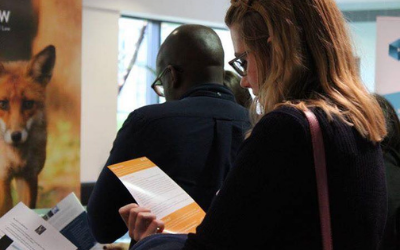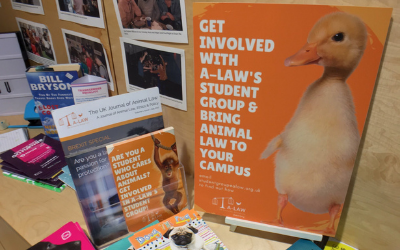On 14 December 2023, the Government moved a step forward to prohibiting in England the keeping of primates as pets by persons at home and in private collections by laying out the draft Animal Welfare (Primate Licences) (England) Regulations 2023 (the “Regulations”) . ...
By Dr. Meganne Natali The CITES Conference of the Parties, this year called COP19, occurred in Panama City, from 14 to 25 November. The Conference of Parties meets every 2-3 years to review implementation of the Convention. This year, they discussed improving the implementation of Convention...
In the latest episode, Paula discusses the puppy trade and dog theft in Ireland with Dr. Stephanie O’ Flynn, a Lecturer in Law in the Department of Law and Criminal Justice at Waterford Institute of Technology, Ireland. Stephanie has a particular interest in the legal treatment of dogs, and in...
Watch this short video to find out more about our position on the UK Government’s proposal to ban the private keeping of primates. In February 2021, our Wildlife Law and Companion Animal Law Working Groups submitted a joint response to a Government consultation on the keeping of primates as...
The UK Centre for Animal Law (A-LAW) has released a free special edition of The UK Journal of Animal Law, which focuses on DEFRA’s recent ‘Action Plan for Animal Welfare’ and the UK Government’s Animal Welfare (Kept Animals) Bill. Featuring contributions from members of our...
In this episode, A-LAW legal experts discuss two legal cases that made the headlines in 2020. Friends of Antique Cultural Treasures Ltd v DEFRA [2020] EWCA Civ 649, concerning a challenge to the legality of the Ivory Act 2018, and R (National Farmers Union & Anor) v Secretary of State for...
By Jenny Canham, Campaigns and Public Affairs Specialist, Animal Equality UK Animal Equality, a leading animal protection organisation, has joined with cross-party MP representatives to respond to DEFRA’s recent announcement of plans to implement a ban on foie gras imports ‘in the next few...
By Sophie Mills, Trainee Solicitor The Scottish wildcat (Felis silvestris) is one of the few native predators left in Scotland. With only 35 recorded in northern Scotland in recent years, they are at risk of genetic extinction. Three main factors have contributed to this: (1) hunting for sport;...
By Luke Steele, Masters student at the University of Bradford, Managing Director and Spokesperson of Ban Bloodsports on Yorkshire’s Moors At first glance, the Hen Harrier Recovery Plan (DEFRA, 2016) looks positive: a protection scheme for at-risk hen harriers that looks to give one of England’s...
By Sophie Lunn The Eurasian Beaver (Castor fiber), formerly a native inhabitant of Britain, became locally extinct in the 16th century due to anthropogenic persecution and the classification of their species as vermin. Some studies show bounties placed on the head of the beaver...



















Recent Comments